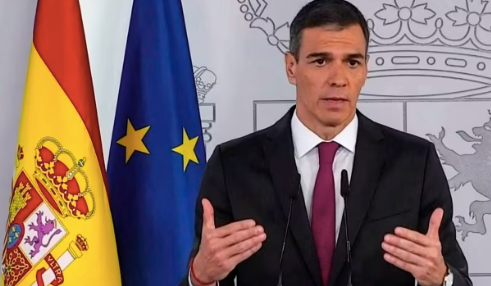Spanish Prime Minister Pedro Sánchez has firmly upheld his decision to deviate from the newly proposed NATO defense spending target. Despite the threats of economic retaliation from former U.S. President Donald Trump. The dispute ignited at the recent NATO summit in the Hague. This has reignited tensions between national sovereignty and collective alliance obligations.
NATO member states have agreed to increase defense spending to 5% of GDP by 2035, allocating 3.5% for core military capabilities and an additional 1.5% for infrastructure, cybersecurity, and related security measures.
Although, Sánchez successfully negotiated an exemption for Spain, committing it instead to a more modest 2.1% of GDP, which he described as “realistic and sufficient,” This decision sparked fierce criticism. Trump endorsed Spain’s stance publicly. He branded it a “free-ride” at 2%. They will pay more money this way, warned Trump. He promised direct negotiations and eventual tariff increases on Spanish products.
Sanchez remained undeterred. During a post-summit press conference, he emphasized that trade negotiations fall under the European Commission’s jurisdiction and not Spain’s. He affirmed that Spain’s commitment to maintaining strong ties with the United States and underscored its identity as an “open and friendly” nation.
This decision carries political weight. Spain spent just 1.28.% of GDP on defense in 2024, the lowest in NATO. It had previously promised to reach the 2% mark this year. Sánchez’s recalibration to 2.1% comes amid a wave of corruption scandals engulfing his Socialist Party, with critics accusing him of using the NATO fight to shift focus from internal issues.
Internationally, Spain has drawn fire from both Trump and several European leaders. Countries like Belgium and Poland denounced the exemption, warning it might fracture NATO solidarity. Poland, which spends 4.7% of GDP on defense, labeled the carve-out a threat to alliance unity. French President Emmanuel Macron also criticized Trump’s approach, saying it was illogical to demand higher defense contributions while simultaneously threatening trade conflicts
Despite the outcry, NATO Secretary-General Mark Rutte accommodated Madrid’s concerns by subtly revising the summit declaration—changing “we commit” to “allies commit,” which legally allowed for exemptions. Still, Rutte maintained that the unanimous agreement included an “ironclad commitment” to Article 5 and the eventual 5% goal
The clash underscores deeper pressures within NATO: balancing national fiscal policies with collective defense imperatives against a backdrop of global tensions, including Russia’s war in Ukraine. The U.S. has shouldered nearly half of NATO’s defense expenditure, prompting it to push Europe to share more of the economic burden.
What comes next hinges on pivotal deadlines. The alliance is set to review member progress in 2029, with the full 5% goal slated for 2035. Meanwhile, the looming threat of U.S. tariffs—despite their uncertain legal viability when targeting individual EU countries—adds economic strain.
In Madrid, Sánchez stands by his approach, asserting that Spain’s chosen 2.1% path preserves both fiscal stability and social welfare. As his domestic challenges grow, this NATO confrontation could serve to bolster his image as a decisive leader defending national priorities. Keep Reading Questiqa Euro.

More Stories
Brussels Hosts Exciting BD Comic Strip Festival from 26th to 28th September
Germany Launches New Initiative to Boost Green Energy Across Europe
Unexpected Event Shakes Central London: What You Need to Know Now!